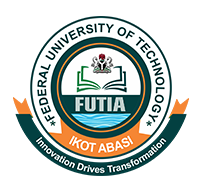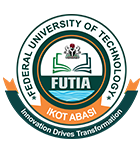PHILOSOPHY OF THE PROGRAMME
The Mechanical Engineering Programme is designed to accommodate, reflect and impart the general concept of technological and technical education with a broad-based, a sound and a blend of theoretical and practical know-how. The ever-growing need for middle-level manpower in Mechanical Engineering profession is as a result of expansion in the exploration and exploitation of abundant natural resources like oil, gas and a variety of other numerous mineral wealth in the country.
Consequently, the high increase in the number of mechanically based manufacturing and service industries has generated interest in the profession beyond gender division, leading to the placement of the course as a pivot in the practice of engineering generally.
Mechanical Engineering covers the science and art of formulation, design, development, manufacturing and control of systems and components. These may take in account both power-generating machines and machines that transform and consume this power, such as turbines, engines, propulsion devices, fossil and nuclear power plants, transportation systems (space vehicles, marine vehicles, automobiles, trains, etc.) and motor control mechanisms. Other aspects that fall under this include refrigeration and air-conditioning systems, cryogenic systems, manufacturing systems and machines, earth-moving devices, building services and material handling.
Therefore, Mechanical Engineering field is broad and requires a sound knowledge of numerous subjects spanning thermodynamics, heat transfer, machine design, engineering drawing, mechanics of solids, fluids, materials and machines, etc. A basic knowledge of other related branches of engineering specifically, Civil, Electrical, Electronics and Computer Engineering is imperative.
Our overall philosophy then is to produce graduates of Mechanical Engineering of a high academic standard equipped with sufficient technical and practical know-how, who will be able to fit immediately and efficiently into the academic world, industries and consultancy services so as to contribute immensely towards National goals and industrial evolution and technological advancement.
In pursuit of this philosophy, Mechanical Engineering training is fashioned to develop a concise practice in training, promote association of the programme with industries in the country, offer basic courses fundamental to all Engineering fields and other related science and technical fields of study, design projects with bias towards local content and application, and handle project in the final year in which the student works under a supervisor. There is also distinctive skills and thorough training in a specific aspect of the programme via options and electives, together with broad understanding in the area of Engineering Economics, Management and Law to better equip the our graduates for the challenges ahead.



